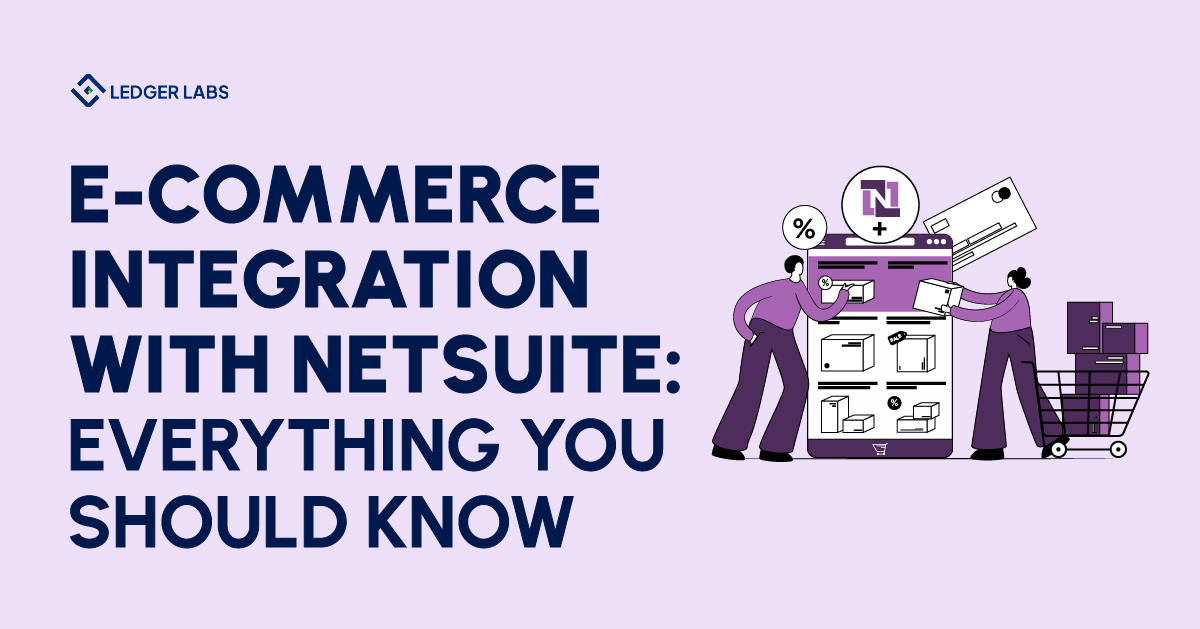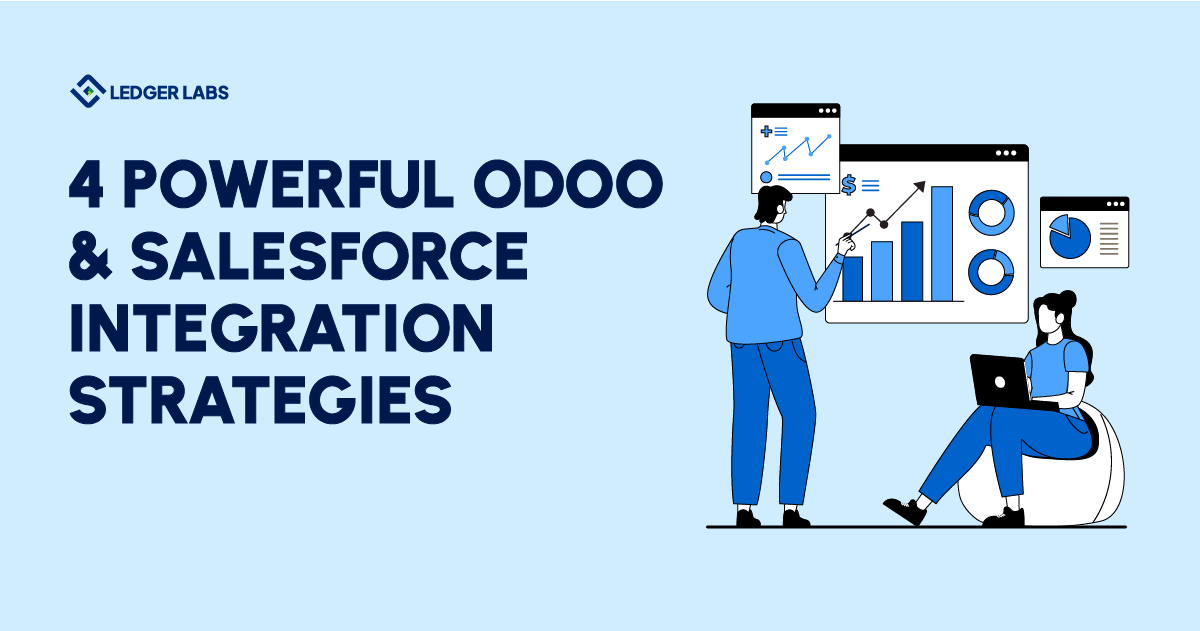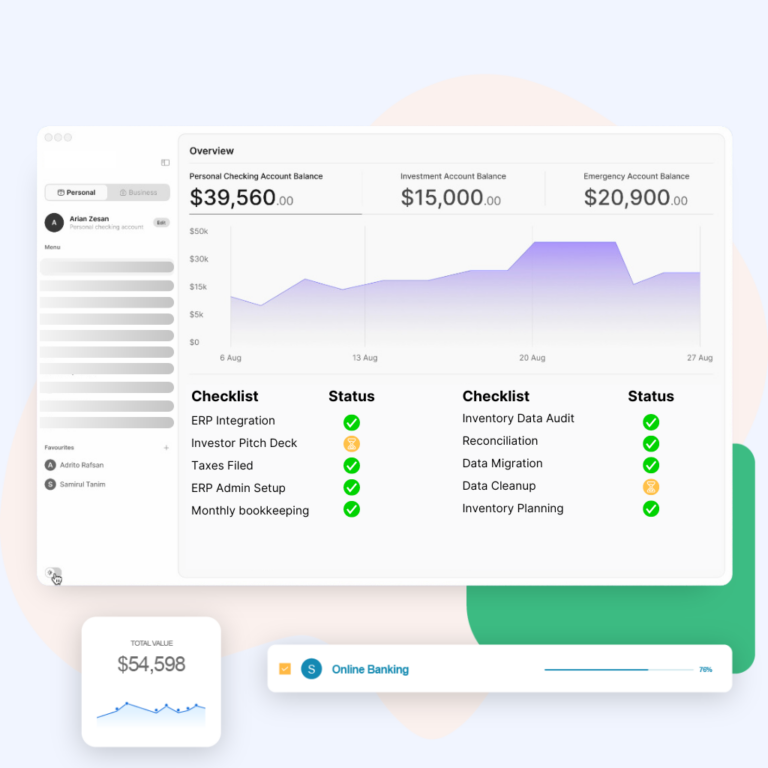Today’s competitive e-commerce world is no longer just about price or product quality. Customer experience is now a brand’s true differentiator.
How fast your business processes customer orders can make or break that experience.
When you re-enter data manually into your systems, it slows down the entire procedure, leading to order delays. Not only does it waste time but it also adds cost and increases errors.
To keep up with demands and prevent customer frustrations, you need a robust system to eliminate these inefficiencies. This is where NetSuite E-commerce integration steps in.
Combining NetSuite with your e-commerce platform is one of the most sustainable solutions you can try. Let’s explore how this integration can help your business and the steps to achieve it.
- NetSuite integration combines various e-commerce platforms to enhance the efficiency of online business.
- Real-time data syncing improves order processing, inventory management, and ultimately, customer experience.
- Examine business size, budget, and complexity to select the best integration approach.
- Structured steps, from assessing needs to monitoring, will help you attain positive results with NetSuite e-commerce integration.
- Consider a NetSuite professional’s help to ensure an effective integration process.
An Overview of NetSuite
NetSuite is a cloud-based platform designed to streamline your entire business processes. As a single, powerful system, it can easily manage key areas like finances, inventory, and customer data.
For e-commerce businesses, NetSuite offers essential tools to help make operations smoother. Take a look at the key components that can benefit an online store:
- ERP (Enterprise Resource Planning): It keeps your business organized by managing financials, inventory, and orders in one system.
- CRM (Customer Relationship Management): Know your customers better than ever. The goal is to track customer interactions and improve service.
- SCM (Supply Chain Management): Keep tabs on your entire supplier chain, from supplier to customer.
One of the reasons why NetSuite ERP differs from other systems is due to its flexibility.
While traditional ERPs often need large-scale customization, NetSuite offers built-in solutions for e-commerce.
You can easily integrate NetSuite with popular platforms like Shopify or WooCommerce.
Plus, you get real-time visibility into your business without needing multiple tools. This makes it easier to scale as your business grows.
You don’t have to put in more labor to manage operations—you just optimize the current ones.
Additionally, owing to the software’s cloud-based nature, updates happen automatically. So, stay assured your processes will run smoothly without added downtime.
Exploring The Modern E-commerce Challenges?
E-business is booming at a rocket speed. The United States’ e-commerce revenue is projected to grow rapidly by 2029, with a total increase of 657.8 billion U.S. dollars.
However, with significant growth comes challenges for online stores. The reality is standalone e-commerce platforms can only do so much.
Keeping up with customer demands gets tough if you don’t have a unified system in place.
Moreover, managing inventory across various channels can be a nightmare and so does the shipping logistics.
Simply put, managing inventory, processing orders, and handling customer data in separate platforms often leads to issues.
Another disadvantage of using several systems is you may face data silos that may be problematic as they can:
- Create duplicate task
- Lead to data inaccuracy
- Waste efforts, time, and money
- Affect customer trust
- Make it difficult for stakeholders to collaborate and discuss
These difficulties are enough to make any business owner frustrated. That’s why, a robust e-commerce integration with NetSuite comes in handy.
One of the benefits of e-commerce ERP integration is it gives you a bird’s-eye view of your business so you can better judge your company’s progress. From inventory to orders, a combined platform keeps everything all in sync.
In addition, it can resolve these common issues:
- Disconnected systems with everything in one place
- Data silos as there will be no more separate databases
- Inefficient workflows, thanks to automation
How Does NetSuite E-commerce Integration Work?
As we know, integration means connecting your existing e-commerce platforms like Shopify or WooCommerce with NetSuite ERP.
Doing so allows automatic communication and sharing of data across the two interfaces.
Here’s how NetSuite E-commerce integration will work:
- Order Processing: When your customer places an order on your online store, the integration will send the details to NetSuite. The ERP system then begins the shipping process without you having to enter the data manually.
- Inventory Management: Many e-businesses sell on multiple platforms for better reach of their products. Since NetSuite tracks inventory in real-time, it will update across all stores automatically if a product sells out on one platform.
- Customer Data Sync: The e-commerce integration with NetSuite instantly creates a customer profile in the ERP system. This keeps their order history and preferences in one place for future use. It is essential information when you need to expand your product line and try to pitch those to your existing customer base.
Benefits of A Fully Integrated E-commerce System with NetSuite
Now that we’ve understood what happens when NetSuite integrates an e-commerce platform, let’s look at its advantages. Here are a few of them:
- Comprehensive Integration: Simplifies managing your e-commerce operations by combining various processes like order management, inventory, and CRM.
- Multi-Channel Proficiency: NetSuite enables sales across online stores, marketplaces, and social media. This multi-channel capability broadens your reach and increases sales opportunities.
- Personalized Storefronts: You can tailor your store to match your brand identity with the help of the NetSuite customization option. Personalizing the shopping experience for prospects helps attract and retain them. It also sets you apart from competitors.
- Integrated Inventory Oversight: Real-time updates on inventory levels prevent over-selling and out-of-stock problems. You maintain customer satisfaction when display those products that are in stock. This integration can expedite the inventory management process as it knows which products are available and which are sold.
- Efficient Order Processing: No more delays in shipping the orders to your customers. This will ensure an enhanced service experience for your clients.
- Integration with Marketing Solutions: Connects with marketing tools for targeted campaigns to optimize your marketing efforts. Leveraging this feature will help you reach the right and wider audience base.
What E-commerce Platforms Can Be Integrated with NetSuite?
NetSuite’s ability to integrate with various e-commerce platforms makes it a popular choice among many online sellers. Let’s take a look at these platforms:
- Shopify: An easy-to-use platform that helps you manage products, orders, and customers effortlessly. With Shopify and NetSuite integration your business can simplify many tasks.
- Amazon Marketplace: Sell products to a huge customer base with Amazon Marketplace. One of the best things about Integrating it with NetSuite is order placement and inventory management get easier. Amazon accounts for about 37.8% of all U.S. e-commerce sales, followed by eBay for 3%.
- eBay: A major online marketplace that connects you with global buyers. It processes over 1.7 billion listings yearly, highlighting its importance in e-commerce.
- BigCommerce: This platform allows you to set up your online store quickly. That’s the reason over 50,000 merchants trust BigCommerce for their e-commerce needs.
- Magento: Great for businesses that need to scale big, Magneto offers many customization options and tools for marketing.
Picking the right e-commerce platform—and making sure it works well with something like NetSuite—can really make everyday work a lot easier. That’s where a team like Elogic Commerce can step in and help get things running smoothly.
Choosing the Right Integration Method for Your Business
Though it sounds complex, NetSuite e-commerce integration is easier than you think. There are three common methods to perform this procedure, including:
SuiteCommerce
It is NetSuite’s built-in solution for e-commerce that is ready-to-use for managing online stores. However, this method may:
- Limit advanced features and customization
- Not support all e-commerce and marketing needs
- Have higher ongoing licensing costs
- Not be effective in the long run
Middleware/iPaaS
The second method serves as a bridge between NetSuite and various e-commerce platforms. Platform-agnostic and reliable, iPaas can offer a stable connection throughout.
Some of it’s cons are:
- Require you to follow standardized NetSuite practices
- Licensing fees can add to the overall cost
- Limited flexibility
Direct API Integration
If you’re looking for an integration technique that offers the highest level of flexibility and customization, API integration is the one for you.
It can work with any NetSuite setup without extra licensing costs.
Though this option is open to providing tailored solutions, it requires deep knowledge of NetSuite implementation.
A few drawbacks of this method:
- Demands expertise for successful deployment
- Technical knowledge of NetSuite API
- Ongoing maintenance and troubleshooting require dedicated resources
- Potential for errors
Criteria for Choosing the Best Method
We understand choosing one among the three integration methods mentioned above can get confusing.
Nonetheless, it’s important to decide according to your specific requirements so you don’t invest money in something you don’t require.
To aid you through the selection process, here are some key factors that you need to consider:
- Business Size: Your organization size plays a big role. While smaller businesses might need simpler solutions, complex integrations may suit larger companies.
- Budget: Different methods have varying costs so make sure you choose one that aligns with your financial plan.
- Complexity of Operations: If your business processes are complex, you might need a more advanced integration.
- Expert Advice: Seek advice from NetSuite-certified experts who can help you make the right choice.
Step-by-Step NetSuite E-commerce Integration Process
When integrating NetSuite with your e-commerce platform, a structured approach is always helpful for maximizing the benefits of both systems. The general steps you can follow are mentioned below:
- Assess Your Requirements: Start by identifying specific business goals you want to achieve with the integration.
- Check Your Current Setup: Your existing e-commerce and NetSuite setups will highlight potential issues you need to resolve with this integration.
- Choose an Integration Method: Depending on your company’s size, job complexity, and budget, select the method that best suits your needs. Whether it’s SuiteCommerce, middleware, or direct API integration, each technique has its own pros and cons. Hence, pick the one that aligns with your goals.
- Select an E-Commerce Platform: If you are new to the e-commerce world, choose a platform that works well with NetSuite.
- Plan Data Mapping: Data errors can happen during the process. Therefore, determine how data will flow between the two systems. When mapping is done correctly, rest assured critical information is synchronized accurately.
- Configure Integration: Set up the integration according to your chosen method. You have to follow the directed configuration steps to avoid disruptions in your business operations in the future.
- Customize Integration Logic: Personalize the e-commerce integration with NetSuite as much as you need. After all, it’s your system so make certain it matches your company’s work standards.
- Testing & Data Migration: Once the configuration is done, thoroughly test the integration to identify any issues before going live. It’s a cautionary step that is vital to avoid problems once the system is fully operational.
- Training: Well-trained staff will help boost the benefits of the integration.
- Go-Live and Monitor: Congratulations. You’ve successfully combined these two systems. It’s better not to forget to monitor its performance closely so you can address potential problems promptly.
Challenges A Business Might Face During NetSuite E-commerce Integration
It’s undeniable that integrating NetSuite with an e-commerce platform can greatly impact business operations. However, like any major system change, you might encounter a few challenges.
- Data Migration Issues: Chances are that the system will show errors while transferring data from separate platforms. In this case, audit your data before integration.
- Customization Complexity: Many e-businesses may require unique features and personalization of the system might seem overwhelming. It’s better to work with NetSuite experts, who have years of experience, in designing custom workflows.
- Integration Downtime: Your sales will definitely be affected when you’re performing the integration. One of the best ways to avoid it is to plan your schedule during low-traffic periods. This will ensure minimal disruptions to your customers.
- Incompatible Platforms: Not all e-commerce platforms will show greater results of integration with NetSuite ERP. Therefore, your first step would be to verify whether your chosen website is compatible.
- Ongoing Maintenance: For any integration to run successfully, you need to arrange for regular inspections. You can even hire a dedicated team who’ll solely focus on managing the maintenance tasks.
The Bottom Line
Before combining any two platforms, we recommend examining key aspects like integration methods, business goals, and customization needs.
Doing this will make your integration a successful project. Moreover, it’s also vital you continuously track its performance to measure its efficiency.
As a leading NetSuite solution provider, Ledger Labs commitment extends beyond the customer’s expectations. Our qualified team can make all the adjustments and implementations while adhering to the standards set by NetSuite.
Want to take the next steps? Schedule an appointment today with our experts and clear your doubts instantly.













